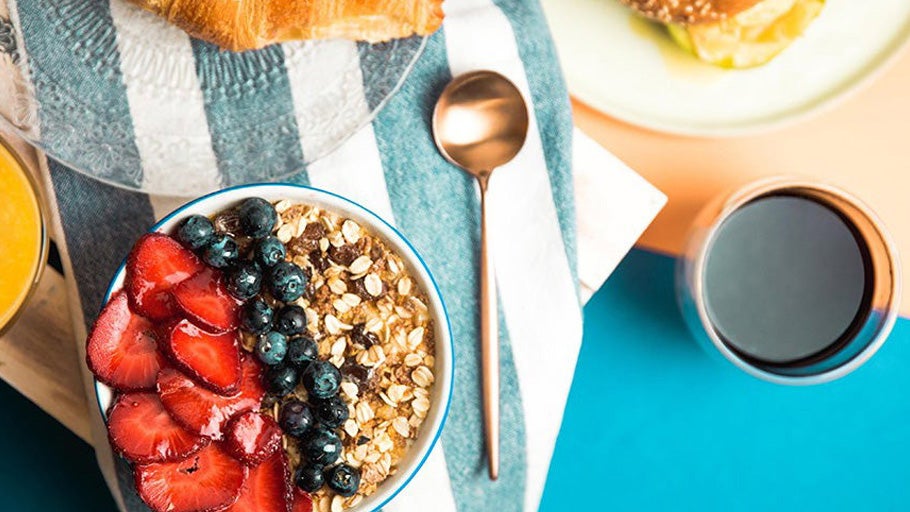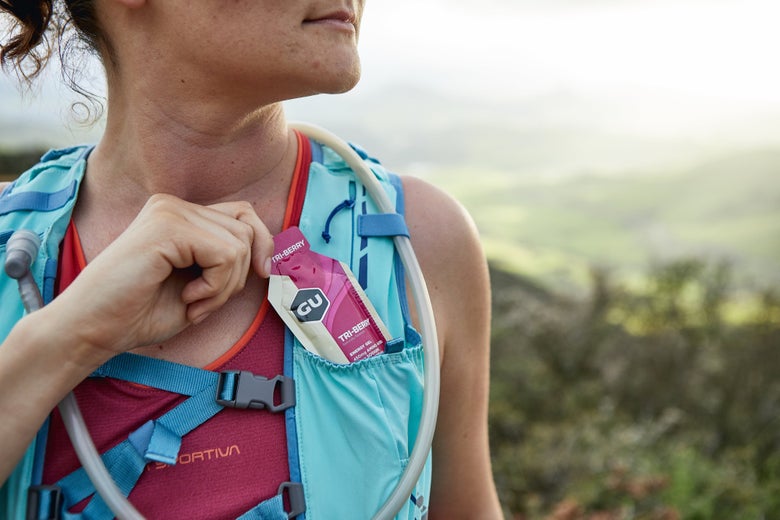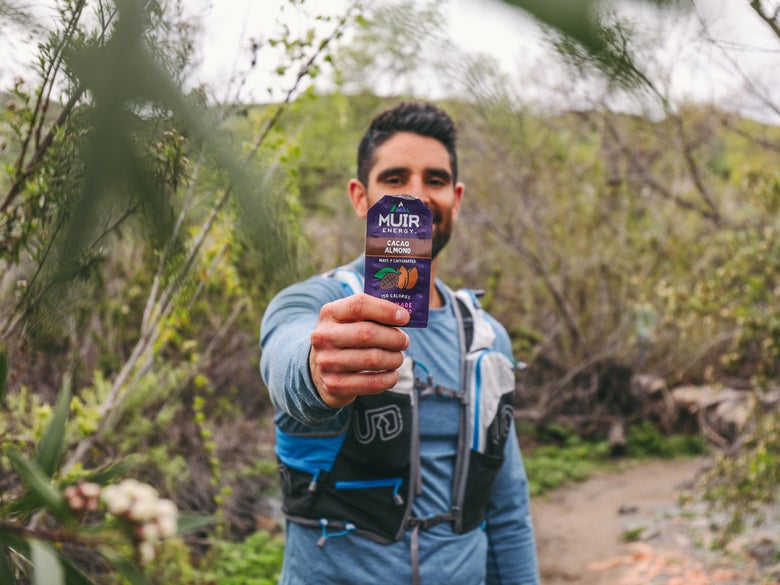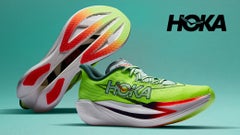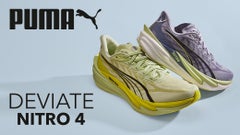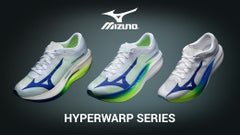
Running Nutrition & Hydration: The Ultimate Guide to Fueling Your Performance
Running is one of the most popular ways to stay fit and healthy. Without the right nutrition and hydration, however, even the best training may come up short. Whether you're running a marathon, preparing for a race, or establishing a running routine, proper fueling keeps you energized, hydrated, and ready to perform at your best.
Choosing the right nutrition and hydration options makes your running routine more sustainable and your results more rewarding. At Running Warehouse, we’ve created a complete guide to running nutrition to help you fuel smarter and go farther.
The Three Key Stages of Running Nutrition
Nutrition plays a critical role in running performance and starts before your run itself does. The three key stages of fueling are:
- Pre-Run – Prepare your body with carbohydrates, fluids, and optional protein or fats.
- Mid-Run – Sustain energy, replenish electrolytes, and avoid hitting the wall.
- Post-Run – Replenish glycogen, repair muscles, and restore hydration.
Proper hydration, balanced carbohydrate intake, and adequate protein are essential for all runners. When you train for a race or a marathon, test your nutrition during training. This helps you avoid discomfort and perform better on race day.
Pre-Run Fueling
The first step to fueling your run begins before you put on your shoes. Having a well-thought-out pre-run meal and hydration plan can make all the difference when preparing for a long run.
What to Eat Before a Run
Eating too much or too close to your run can cause discomfort, but eating too early before a long run may leave you feeling low on energy. Following these pre-run nutrition guidelines will help set your run up for success:
- Eat a large pre-run meal (400 to 700 calories) composed mostly of carbohydrates.
- Eat 2 to 4 hours before any long runs for proper digestion.
- Eating an energy-boosting energy chew before a run is a tasty addition to your pre-run meal. They provide carbs that will keep your muscles fueled with energy.
- If you've done a warm up, or are concerned about blood glucose spikes, take a gel or some chews 20 minutes before you run, or right after you start.
Tip:
Adjust timing and portion sizes to suit your digestive comfort and energy needs. If you’re short on time, a small, light meal 1-2 hours before a run can also suffice.
Pre-Run Hydration
Maintaining proper hydration during physical activity is one of the most impactful ways to optimize performance. From keeping your body functioning properly to helping you stay on top of your running game, there is no denying the importance of staying hydrated. Some guidelines to follow when hydrating before your run are:
- Drink 16 to 20 ounces of water or your favorite hydration drink in combination with your pre-run meal.
- Use hydration mixes to give your body electrolytes and carbohydrates needed for running.
- For an extra boost, choose pre-run hydration drinks that contain caffeine.
Mid-Run Fueling
Once your run passes the one-hour mark, your body begins to deplete its stored carbohydrate reserves, also known as glycogen. Without refueling, this can lead to fatigue, cramping, and “hitting the wall.”
What to Eat Mid-Run
Mid-run nutrition ensures your muscles have the carbohydrates they need to keep going strong. When consuming nutrition mid-run, shoot for the following:
- Aim for 30-60 grams of carbs (about 100-200 calories/one energy gel) for every 30 minutes of running.
- Always drink water with any gels or chews you consume to aid in digestion and absorption.
- During 2+ hour runs or ultramarathons:
- Some athletes may want to consider consuming up to 90 grams of carbs per hour.
- Consume one gel every 20 minutes or use drink mixes that combine glucose and fructose for better energy absorption and sustained energy.
There are several ways to fuel with nutrition mid-run, such as gels, chews, and waffles. Let’s break down each option:
Energy Gels:
- Contain sugars like maltodextrin, glucose, and fructose, which are quickly absorbed to fuel your muscles with a rapid supply of energy.
- Most gels include sodium and potassium to prevent cramps, support hydration, and replenish electrolytes.
- Gels help keep energy levels stable and prevent sudden fatigue.
Chews & Gummies:
- Compact and easy to carry, less messy than gels.
- More digestible for some runners than gels.
- Packed with easy-to-digest carbohydrates.
Energy Waffles:
- Combines simple carbs for quick energy with complex carbs for sustained fuel.
- Provides more substance to curb hunger longer.
- Ideal for long runs, ultras, or runners who don't like sweet gels.
Nutrition Bars:
- Compact and easy to carry.
- Contain complex carbs, fats, and protein for slow-release, long-lasting energy.
- Provides more substance to curb hunger longer.
Drink Mixes:
- Easy to carry in both mixed and unmixed form.
- Provides fuel and hydration at the same time by combining carbohydrates with electrolytes.
- Drinkability allows for more sustained fueling and easier access while running.
- Gentler on digestion.
Finding the right mid-run nutrition strategy that suits your needs may require some testing. If you're gearing up for a big race, practice your fueling strategy during training so you can keep your stomach happy and perform at your peak when it matters most.
Mid-Run Hydration
Staying hydrated during your run is just as important as replenishing calories. Dehydration not only slows you down but can also lead to serious performance issues such as cramping or fatiguing early. Some mid-run hydration guidelines to follow:
- Drink 16 to 36 ounces of fluid every hour, adjusting for heat, sweat rate, and intensity. (More sweat = more hydration!)
- Replenish electrolytes to replace sodium, potassium and magnesium lost in sweat.
- Start hydrating before you get thirsty to prevent fatigue or "bonking".
Post-Run Fueling
Once you've perfectly executed your pre-run and mid-run nutrition plans (and achieved a new personal best), it's vital to properly refuel. Resupplying your body with the nutrients it loses during a run will help you recover faster and make running more sustainable.
Post-Run Hydration
The first step to refueling after a run is hydrate, hydrate, hydrate! Drinking water with your favorite hydration supplement will help you feel better and assist your body with digestion of other important nutrients.
Post-Run Nutrition
Once you've rehydrated, the next step in post-run recovery is to refuel with food. Consuming carbohydrates, proteins and fats is essential for muscle recovery and repair, and skipping this step may prolong recovery and negatively affect your training schedule.
Recovery drink mixes are another convenient way to replenish spent nutrients after a run. Look for recovery drink mixes that contain a carbohydrate-to-protein ratio of around 2:1, which supports muscle recovery and energy restoration. Recovery drinks provide a balanced combination of carbs, proteins and other nutrients to help your body recover and get ready to run again in no time.
Frequently Asked Questions
Is mid-run nutrition truly necessary?
If your run lasts less than an hour, water is usually enough. For runs lasting 75 minutes or more, mid-run carbs (found in gels, chews, or sports drinks) can help maintain energy and prevent fatigue.
What are electrolytes?
Electrolytes are minerals like sodium, potassium, magnesium, and calcium that carry an electrical charge. They help your body control fluid balance, contract muscles, and send nerve signals. These functions are important for running performance.
Sweating causes a loss of water and electrolytes. If they're not replaced, dehydration cramps and tiredness happen more quickly. Sports drinks, hydration mixes, and electrolyte tablets are valuable during longer or hotter runs because they replace the minerals your body is burning through so you can keep moving strong.
Are sports drinks necessary for every run?
Sports drinks are most helpful for runs that last longer than 60 minutes, or in hot and humid conditions where you're losing electrolytes quickly. For shorter runs, hydrating with water is generally sufficient.
What's the best way to carry fuel on a run?
Hydration vests and belts are convenient options for storing your hydration on the run, along with handheld bottles. For gels, collapsible soft flasks offer easy storage with quick access when you need it.
For chews, waffles, gels or electrolytes powders, running vests with pockets are a popular choice. Most running tights and shorts also feature built-in storage options, so you can easily bring your extra fuel on every run.
Can I use real food instead of gels or chews?
Yes! Many runners successfully refuel with real, easily digestible carbohydrates in place of gels or chews. The key is to choose foods that are portable, quick to digest, and gentle on your stomach like raisins, dates, or pretzels.
What is fructose and how does it help me run?
Fructose gives your muscles a quick burst of energy. When you combine it with another carbohydrate, like maltodextrin, your body can absorb and use energy more efficiently. Using two types of carbs lets your body take in more fuel per hour.
A single carbohydrate usually tops out around 60 grams per hour, but adding a second type like fructose, can increase that to over 90 grams. This helps you run longer without fatigue and helps avoid "hitting the wall". Fructose also makes gels taste sweeter and easier to eat during long runs.
How do I avoid stomach issues when fueling?
To avoid stomach issues on the run, practice your fueling strategy during training, and not on race day. Stick to familiar foods, avoid too much fiber or fat before your run, and don't overdo mid-run carbs all at once. Always pair any food with water to ease digestion.
What should I eat on days when I'm not running?
A balanced, nutrient-rich diet is important every day, not just on training days. Focus on whole foods with a mix of carbohydrates, healthy fats, proteins, vitamins and minerals. Building good nutritional habits supports your overall well-being, aids recovery, and ensures your body is ready for every run!
Master Your Running Performance with Smart Nutrition and Hydration
Fueling your runs with the right nutrition and hydration is essential for maximizing energy, maintaining endurance, and speeding up recovery. By planning your pre-run meals, choosing the right fuel during your run, staying properly hydrated, and recovering after your run is complete, you give your body the tools it needs to perform at its best.
Remember to experiment during training to find the foods, energy gels, and hydration strategies that work best for you, and always prioritize consistency and balance. With the right plan, you can prevent fatigue, increase endurance and recovery, and hit your running goals more easily.





